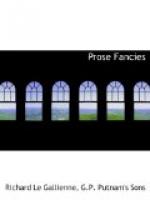’All the air is thy
diocese,
And all the chirping choristers
And other birds are thy parishioners:
Thou marriest every year
The lyrique lark, and the
grave whispering dove,
The sparrow, that neglects
his life for love,
The household bird with the
red stomacher;
Thou mak’st the blackbird
speed as soon
As doth the goldfinch or the
halcyon.’
In fact, it would appear that St. Valentine was, literally, a hedge-priest.
But do lovers, one wonders, still observe his ancient, though mistaken, rites? Do they still have a care whose pretty face they should first set eyes upon on Valentine’s morning, like Mistress Pepys, who kept her eyes closed the whole forenoon lest they should portend a mesalliance with one of those tiresome ‘paynters’ at work on the gilding of the pictures and the chimney-piece? Or do they with throbbing hearts ‘draw’ for the fateful name, or, weighting little inscribed slips of paper with lead or breadcrumbs, and dropping them into a basin of water, breathlessly await the name that shall first float up to the surface? Do they still perform that terrible feat of digestion, which consisted of eating a hard-boiled egg, shell and all, to inspire the presaging dream, and pin five bay-leaves upon their pillows to make it the surer?
We are told they do, these happy superstitious lovers, though probably the practices obtain now mostly among a class of fair maids who have none of Mrs. Pepys’ fears of ‘paynters,’ and who are not averse even from a bright young plumber. Indeed, it is to be feared that the one sturdy survival of St. Valentine is to be sought in the ‘ugly valentine.’ This is another of Time’s jests: to degrade the beautiful and distinguished, and mock at old-time sanctities with coarse burlesque. We see it constantly in the fortunes of old streets and squares, once graced with the beau and the sedan-chair, the very cynosure of the polite and elegant world, but now vocal with the clamorous wrongs of the charwoman and the melancholy appeal of the coster. We see it, too, in the ups and downs of words once aristocratic or tender, words once the very signet of polite conversation, now tossed about amid the very offal of language. We see it when some noble house, an illustrious symbol of heroic honour, the ark of high traditions, finds its reductio ad absurdum in some hare-brained turf-lord, who defiles its memories as he sells its pictures. But no lapse could be more pitiful than the end of St. Valentine. Once the day on which great gentlemen and great ladies exchanged stately and, as Pepys frequently complained, costly compliments; when the ingenuity of love tortured itself for the sweetest conceit wherein to express the very sweetest thing; the May-day of the heart, when the very birds were Cupid’s messengers, and all the world wore ribbons and made pretty speeches. What is it now? The festival of the servants’ hall.




